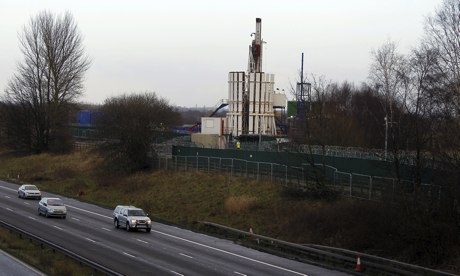
Shale frackers operating in Britain should be paying £6bn a year in taxes by the middle of the 2020s to compensate for the damage wreaked on the environment, according to a study from Cambridge University.
The government has made clear drillers such as Cuadrilla Resources and IGas should provide sweeteners to local communities affected by their activities but it would also be right for shale gas producers to pay for contributing to global warming, argues Chris Hope, a parliamentary adviser and reader in policy modelling at the Judge Business School in Cambridge.
"Shale gas will contribute to climate change in two ways, from carbon dioxide emissions when the gas is burned, and from the fugitive emissions of underground methane that leak into the atmosphere when the gas is extracted," he says.
"Under the Institute of Directors' central production estimate and with a central methane leakage rate of 2%, the tax revenues for the UK will be about £6bn per year in current prices by the time shale really gets going in the latter half of the 2020s."
Hope says that even though there is uncertainty about various aspects of climate change, the social cost of carbon produced when oil and gas is burned has been well assessed and is calculated at $100 a tonne of carbon dioxide.
The social impact of methane has been less well studied, Hope says, but the best estimate for this much more powerful greenhouse gas is a little over $1,200 a tonne.
Hope, a specialist adviser to an inquiry by the House of Lords select committee on economic affairs into aspects of the economics of climate change [see footnote], says the advantage of a tax of this nature is that companies engaged in future fracking would know from the start what extra cost they would be expected to bear.
But he says "many prospects that initially look promising will turn out not to be worth pursuing once these taxes are factored into the equation. The better, cheaper prospects where fugitive emissions can be minimised will be favoured."
Hope also believes that a tax would determine whether it was worth using shale gas as a transitional fuel to a lower‑carbon Britain.
• This footnote was added on 7 February 2013. The House of Lords select committee on economic affairs has asked us to clarify that Chris Hope's work for its inquiry into aspects of the economics of climate change was carried out in 2005, and that he is not advising it on its current inquiry into the economics of shale gas and oil.

